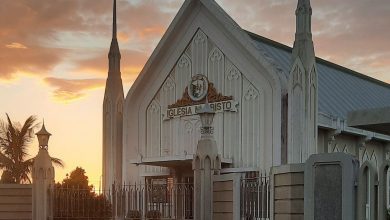
Youth and Faith Groups Unite Against Corruption By Rallying This November
Following INC’s three-day prayer rally, students and community groups take to the streets with a parallel call for accountability.
November has always carried a certain tension in the Philippines. It’s the season when the air turns sharp, when the streets fill with both holiday anticipation and political memory. This year, however, November rallies bring a different pulse — one that beats with anger, conviction, and hope.
Across the country, a wave of public action is set to rise. Youth movements, civic groups, and religious communities are converging under one cry: end corruption, demand accountability. The series of rallies held in November against corruption in the Philippines will mark a rare moment when students and the faithful, activists and clergy, gather not just to protest but to reclaim a moral narrative long eroded by scandal and neglect.
The Youth Take the Lead
On November 17, UP Diliman will once again become a symbol of dissent as thousands of students walk out for the Student Strike Against Corruption: Tindig at Tinig Laban sa Korapsyon.
The nationwide action, organized by the Trillion Peso March Movement and Youth Against Kurakot, is expected to draw over 10,000 participants. Among them: Akbayan Youth, Liberal Youth, Kaya Natin! Youth, SCAP, and the Samahan ng Kabataang Lumalaban (SKL) Coalition.
Their message is clear: corruption doesn’t just steal money, it steals futures. As communities recover from Super Typhoon Uwan, they refuse to stay silent.
Timed with International Students’ Day, the protest will transform the UP campus into a stage of music, art, and collective defiance. Banners and guitars will replace textbooks, and chants will echo alongside student performances not in despair, but in hope that their generation’s outrage can still alter the course of a tired nation, especially during the momentous November rallies.
Faith and Fire: The Trillion Peso March
Running parallel to the youth strike is a growing interfaith movement led by Simbahan at Komunidad Laban sa Katiwalian (SIKLAB) — one of the core organizers behind the Trillion Peso March.
In their statement, SIKLAB condemned what they called “one of the greatest robberies in Philippine history.” They accuse government leaders of siphoning off billions meant for the people’s welfare and development, and call for nationwide action to reclaim what was stolen.
Their calendar is full:
- Nov 7: White Friday Protest @ EDSA Shrine
- Nov 14: White Ribbon Walk vs Corruption @ Makati
- Nov 17: Student Action Against Corruption (in solidarity with student strike)
- Nov 23: Centennial Celebration of Christ the Servant King
- Nov 30: Trillion Peso Protest Action @ People Power Monument
It’s a schedule that mirrors both activism and worship. For SIKLAB and their allies, prayer and protest are not contradictions; they are twin expressions of faith in a nation betrayed yet unbroken.
The Faithful Watch: INC and KOJC Weigh In
Amid the growing unrest, the November gatherings, like the ones held by Iglesia ni Cristo (INC), will also have a massive three-day event from November 15 to 17. Set primarily in Rizal Park, it’s expected to draw tens of thousands of members.
INC leaders have stressed that the gathering is not political, describing it as a “spiritual assembly” centered on prayer for peace, unity, and moral renewal. In a similar vein, the Kingdom of Jesus Christ (KOJC) released a statement affirming its willingness to “join any group in prayer for peace, stability, and transparency,” while clarifying it will not participate in any “destabilization move against the government.”
These pronouncements reflect a careful balance; a recognition of the public’s growing anger, but also a desire to separate faith from the politics of the street.
READ: PH Political Issues September 2025: A Timeline of Events
A Convergence of Convictions
From the shrines of EDSA to the halls of UP, this month’s protests echo a truth older than any administration: Filipinos still believe in accountability.
Analysts note that the momentum feels reminiscent of the early 2010s, when the pork barrel protests erupted across social media and city plazas. But unlike those single-day demonstrations, this November’s movement unfolds as a sequence — a sustained rhythm of prayer, art, and outrage.
And while the government has yet to issue a formal response, the presence of both youth and faith communities in the same civic space signals a shift in tone. During the highly anticipated November rallies, the fight against corruption, once reduced to hashtags and headlines, is once again being lived out in the open.
When will it end?
In the end, the November rallies against corruption in the Philippines may not immediately change policies or send anyone to jail. But they have already done something vital: they’ve reminded the public that outrage can still be moral, and that faith, whether in God or in country, can still find its voice in the streets.



